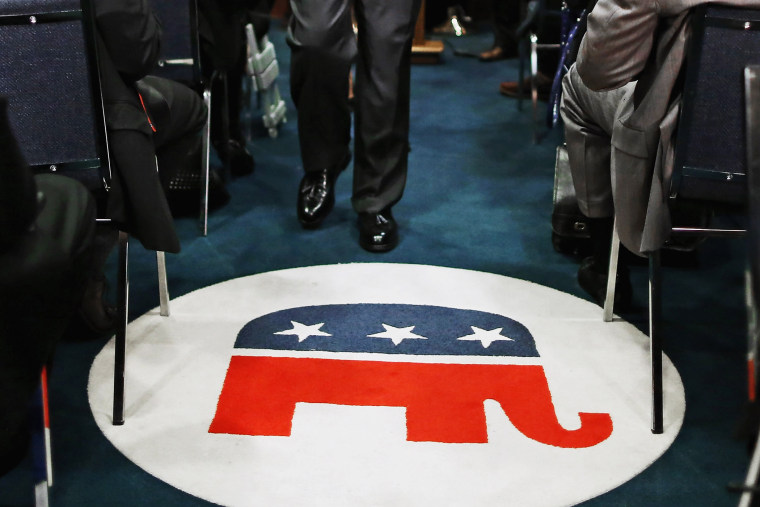Yesterday morning, as the nation was coming to terms with the latest example of Donald Trump's racism, the Charlotte Observer published an editorial with a headline that read, "Are you OK with a racist president, Republicans?"
The newspaper's editorial board described the president's antics as "dangerous" and "destructive," before insisting, "[A]t the least every Republican lawmaker in Congress should declare as much about their president's outburst."
As Eugene Robinson noted, that obviously did not happen.
"Trump is a racist" does not exactly qualify as breaking news. But the silence from prominent Republicans is staggering -- and telling. It amounts to collaboration -- perhaps "collusion" is a better word -- with the president's assault on diversity and pluralism.In the coming campaign, you will hear Republican candidates at every level claim to be colorblind and embrace all Americans regardless of race or ethnicity. Do not believe them. Their failure to speak out now tells us everything we need to know about their true feelings.
In fairness, there were some exceptions. Sen. Joni Ernst (R-Iowa), the vice chair of the Senate Republican Conference, didn't issue a formal statement condemning Trump's antics, but when asked specifically if she considered the president's comments racist, the Iowan conceded, "Yeah, I do."
But her Republican brethren in the GOP leadership -- from both chambers -- were far more circumspect. Members like Senate Majority Leader Mitch McConnell (R-Ky.) and House Minority Leader Kevin McCarthy (R-Calif.) had an opportunity to stand up for core principles such as decency and respect, but by all appearances, they were simply too afraid to lead.
Their reticence served as a painful reminder: it really is Donald Trump's party now.
In practice, Trump operates from the assumption that the key to electoral victory is maximizing racial resentments and reaping the benefits of some Americans' worst and most divisive instincts. In effect, the president sees value in ripping the country apart, confident that he and people like him will be left with the biggest chunk.
Greg Sargent raised a related point yesterday that stood out for me:
As Jacob T. Levy observes, Trump's repetition of racist and white nationalist tropes is laying waste to the norm, recently observed in both parties, according to which elites signal to white voters (at least nominally) that they should be better than our history.In so doing, Levy notes, Trump is "changing what Republican voters think it means to be a Republican." He's changing their expectations of how Republican politicians should behave.In that context, the reluctance of GOP lawmakers to condemn Trump's latest racism becomes a lot more significant.
Quite right. It's certainly true that many Republican leaders and high-profile members are afraid, not just of Trump's ire -- note the president's recent hysterics in response to Paul Ryan's modest rebukes -- but of his followers and their expectations.
Party officials who believed they'd help set the party's direction in the Trump era now realize that power is in the hands of one man: a hapless amateur whose rhetoric on race is too often indistinguishable from the angry, racist drunk at the end of the bar.
Republicans aware of their party's demographic challenges -- the party is increasingly dependent on older white voters, in a nation that's becoming increasingly diverse -- no doubt realize that Trump is making a risky electoral bet. But instead of pushing for a smarter strategy, most GOP leaders have effectively surrendered and accepted defeat.
